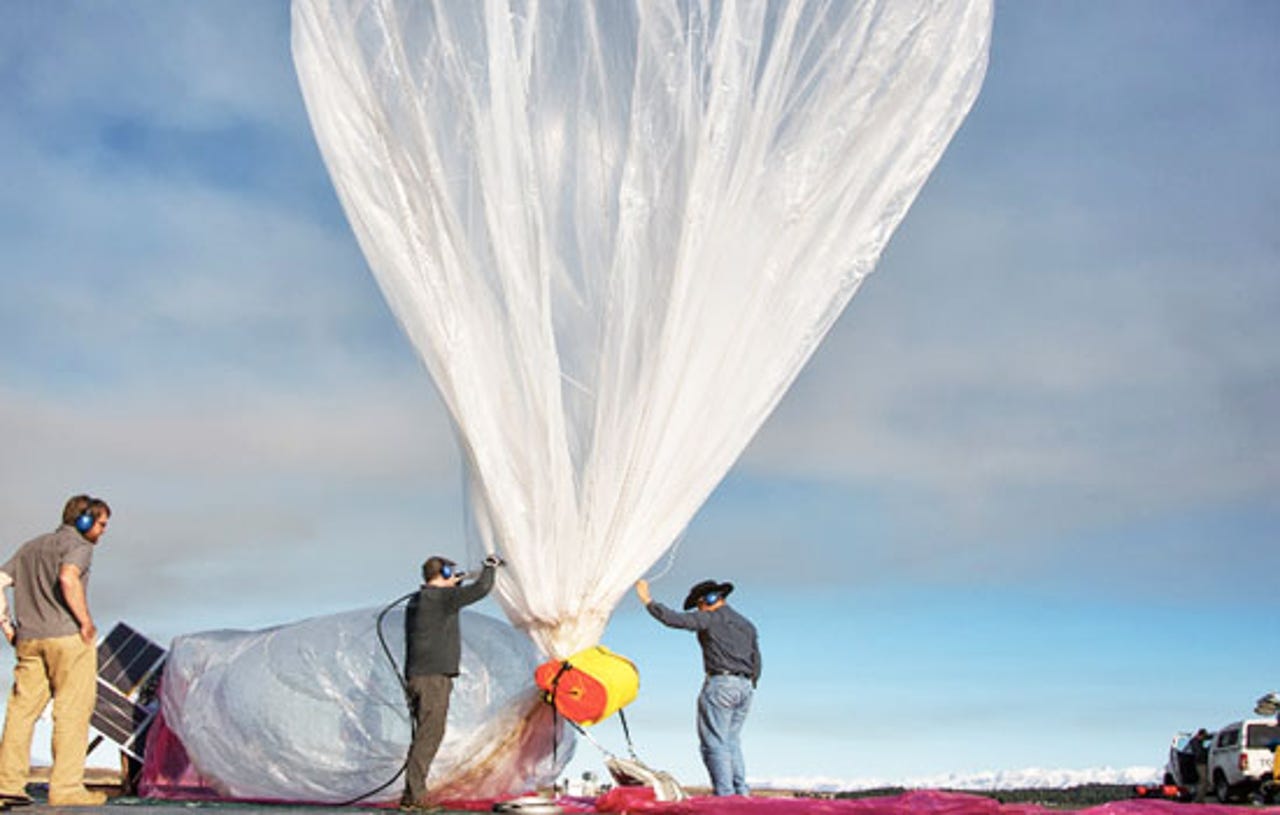Google accused of stealing Project Loon technology


The company Space Data filed a lawsuit against Alphabet this week, alleging that Google X stole from it the technology behind Project Loon, Google's air-balloon beamed internet service.
Space Data filed suit in the U.S. District Court for Northern California, as the Verge first reported, specifically claiming that Google is using confidential information and trade secrets that Space Data shared with the tech giant, pursuant to a 2007 mutual confidentiality and non-disclosure agreement. The company also alleges that Project Loon infringes on two of Space Data's patents -- one referred to as "Airborne constellation of communications platforms and method" and another titled "Unmanned lighter-than-air safe termination and recovery methods."
"Space Data has expended significant amounts of time, effort, and money to ensure Space Data's information was not, and is not, disclosed or otherwise made publicly available, and to preserve and maintain the confidentiality of its trade secret information," the lawsuit says, adding that the company derives "substantial business advantage and significant economic benefit" from its trade secrets.
Google told ZDNet it declines to comment on the suit at this time.
Space Data was founded in 1997, the suit says, and in 2004, it started offering commercial wireless services from altitude-controlled balloons, drifting in the stratosphere. Space Data is licensed by the Federal Communications Commission (FCC) to provide narrowband personal communications services nationwide and has broadband spectrum licenses in remote and rural areas such as Alaska and the Gulf of Mexico. It also serves the U.S. Armed Services with deployments on four continents. The company says it is currently testing a broadband 4G version of its SkySite Platform in partnership with a major wireless infrastructure vendor.
In February 2008, the suit says, about a dozen Google employees -- including founders Larry Page and Sergey Brin -- visited Space Data's Arizona facilities.
"Space Data and Google engaged in extensive discussions about Space Data's business, including its technology, and its financial model, and Google was also given access to Space Data's balloon production line and network operation center where they saw a map of balloons in the sky and the wireless communications coverage Space Data was providing across 1/3 of the United States," the suit says.
It points to various subsequent interviews that Google executives gave to the press that suggest they effectively took Space Data's work.
Google began launching its own balloons in 2013, around places including Australia, Brazil, New Zealand and Sri Lanka.
While beaming internet from balloons is a novel approach, other major companies have shown interest in expanding internet access around the globe. Microsoft last month awarded grants through its Affordable Access Initiative startups seeking to expand Internet access using new technologies. Facebook, meanwhile, has been working on its own plan to use various technologies to expand access.